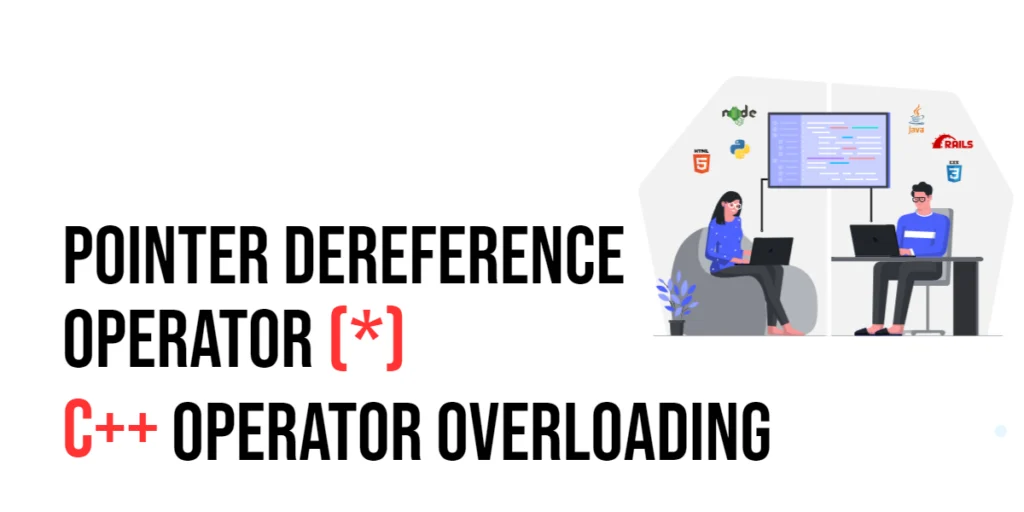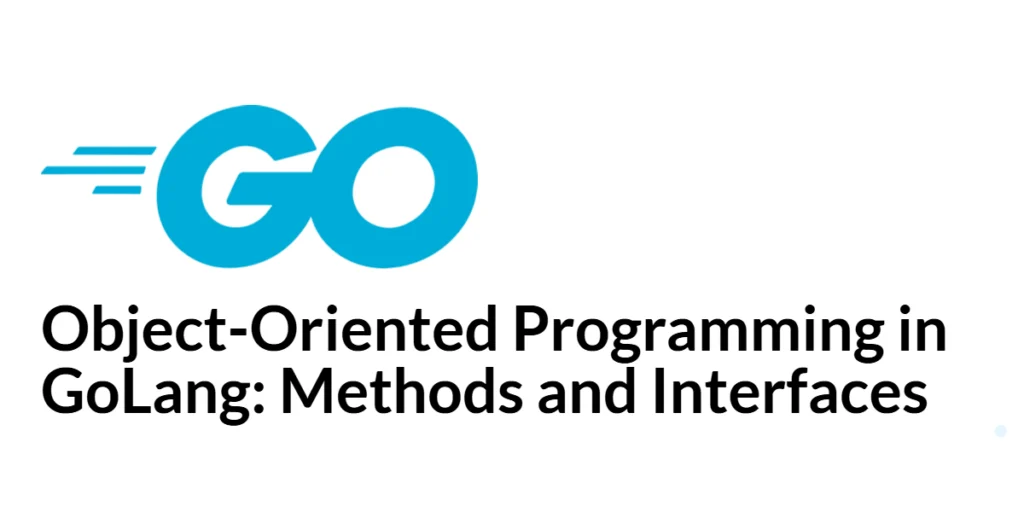In the world of C++, operators are like special commands that instruct the computer on how to perform specific tasks, such as adding numbers or comparing values. But what if you could teach these operators new tricks? That’s where operator overloading comes in—a feature in C++ that lets you redefine what operators do based on your needs. This can be incredibly handy when you’re dealing with custom types that standard operators wouldn’t know how to handle.

with hands-on learning.
get the skills and confidence to land your next move.
In this article, we’re going to explore how to overload the pointer dereference operator (*). This might sound a bit technical, but don’t worry! We’ll break everything down into simple, easy-to-understand parts, complete with detailed examples to help you see how it all works in practice. Whether you’re just starting out with C++ or looking to deepen your understanding, this guide will provide you with a clear and engaging look at one of the language’s more sophisticated capabilities. Let’s dive in and discover the power of operator overloading together!
Understanding the Pointer Dereference Operator (*)
In C++, the asterisk (*) is more than just a symbol used for multiplication. It plays a crucial role in managing pointers. A pointer in C++ is a variable that stores the memory address of another variable. Using the * operator, we can access the value stored at the address a pointer refers to, a process known as “dereferencing.” For example:
int a = 10; // 'a' is an integer with a value of 10
int* p = &a; // 'p' is a pointer holding the address of 'a'
int b = *p; // 'b' is now 10, the value at the address stored in 'p'This ability to reference and dereference memory addresses makes pointers a powerful tool in C++.
Why Overload the Dereference Operator?
Why might one want to redefine how the dereference operator works? Overloading the * operator becomes particularly beneficial when designing classes that are intended to mimic the behavior of pointers. These can be iterator classes, which enable navigation through elements of a container (like an array or a linked list), or smart pointers, which manage memory automatically to help prevent leaks.
Overloading the * operator allows objects of these specially designed classes to be used just as you would use a regular pointer. This not only makes them easier to integrate into existing code but also makes the code more intuitive and easier to understand for someone who might be familiar with pointer operations.
Basic Syntax for Overloading *
To redefine the behavior of an operator for your class in C++, you introduce what is called an “operator function.” This function is declared within your class and has a special name that begins with the operator keyword followed by the operator you wish to overload. Here’s how you can overload the dereference operator:
ReturnType operator*();In this declaration, ReturnType is the type of value that dereferencing an object of your class should produce. Let’s say your class encapsulates a pointer to an integer; dereferencing an object of your class would naturally yield an integer value, so your operator function might return an int& (a reference to an integer).
This form of customization not only adds flexibility to the language but also allows programmers to craft abstractions that feel natural and intuitive, making complex operations simpler and more manageable.
Example: Building a Simple Wrapper Class
Let’s explore a practical example by creating a wrapper class called IntPointer. This class is designed to manage an integer pointer, providing a clear demonstration of how operator overloading, specifically the dereference operator (*), can be applied in a meaningful way.
Imagine you want your class to handle an integer pointer so that using the * operator on an object of this class feels just like using it on a regular pointer. This functionality is especially handy when you want your custom class to mimic traditional pointer operations seamlessly. Here’s how you can achieve this:
#include <iostream>
class IntPointer {
private:
int* ptr; // This holds the actual integer pointer
public:
// Constructor that initializes 'ptr' with the passed integer pointer
IntPointer(int* p) : ptr(p) {}
// Overloading the dereference operator
int& operator*() {
return *ptr; // Return the value pointed to by 'ptr'
}
};In the IntPointer class above, ptr is a private member that holds an integer pointer. The constructor initializes this member with a pointer provided when an object of IntPointer is created. The key feature here is the overloading of the * operator. This overload allows an object of IntPointer to dereference just like a normal pointer to an integer.
Using the IntPointer Class in a Program
Let’s see this class in action:
int main() {
int x = 10; // A regular integer variable
IntPointer myPtr(&x); // Create an instance of IntPointer pointing to 'x'
std::cout << *myPtr << std::endl; // Outputs: 10, as it dereferences the pointer
*myPtr = 20; // Modifies 'x' through the IntPointer instance
std::cout << x << std::endl; // Outputs: 20, showing that 'x' has been modified
return 0;
}In this simple program, x is an integer variable initialized to 10. An IntPointer object (myPtr) is then created, pointing to x. Using the overloaded * operator, myPtr is dereferenced to access and modify x. Initially, dereferencing myPtr retrieves the value of x (which is 10). Then, we modify x through myPtr by setting the dereferenced object to 20. Printing x afterwards confirms that its value has been updated.
This example illustrates how overloading the dereference operator can make your custom classes operate more like traditional pointers, enhancing their intuitiveness and ease of use. By encapsulating pointer-like behavior within a class, you can simplify memory management and improve code readability, all while maintaining control over how data is accessed and manipulated.
Advanced Example: Understanding Smart Pointers
Smart pointers are a sophisticated feature of C++ designed for more advanced memory management, and they provide an excellent context for overloading the dereference operator (*). Unlike regular pointers, smart pointers automatically manage the memory they point to, ensuring that it is properly released when no longer needed. This feature is known as automatic memory deallocation, or more commonly, garbage collection.
Implementing a Basic Smart Pointer
To demonstrate how smart pointers can use operator overloading, let’s create a simple template class called SmartPointer. This class will manage the lifecycle of a pointer, including its creation and destruction, preventing common errors like memory leaks and dangling pointers. Here’s how we can implement it:
#include <iostream>
template <typename T>
class SmartPointer {
private:
T* ptr; // Pointer to manage
public:
// Constructor that initializes with a pointer
explicit SmartPointer(T* p = nullptr) : ptr(p) {}
// Destructor that releases the memory when the SmartPointer goes out of scope
~SmartPointer() { delete ptr; }
// Overloading the dereference operator to provide access to the value pointed by ptr
T& operator*() const { return *ptr; }
// Overloading the arrow operator to provide access to the pointer's member functions
T* operator->() const { return ptr; }
};
int main() {
SmartPointer<int> smartPtr(new int(10)); // Create a smart pointer for an int initialized to 10
std::cout << *smartPtr << std::endl; // Outputs: 10
*smartPtr = 20; // Modify the value through the smart pointer
std::cout << *smartPtr << std::endl; // Outputs: 20
return 0;
}In this example:
- Pointer Initialization: The constructor takes a raw pointer and stores it internally. This pointer will be managed by our smart pointer class.
- Memory Management: The destructor is crucial because it automatically destroys the allocated memory when our SmartPointer object goes out of scope. This automation is a key benefit of smart pointers, protecting against memory leaks.
Operator Overloading:
- The * operator is overloaded to return a reference to the value pointed by ptr. This allows the smart pointer to be used just like a normal pointer when accessing or modifying the value it points to.
- The -> operator is also overloaded to allow the smart pointer to access the member functions and variables of the object it points to directly.
By overloading these operators, the SmartPointer mimics the behavior of traditional pointers while adding the benefit of automatic memory management. This makes smart pointers an indispensable tool in C++, particularly in complex projects where manual memory management is error-prone and cumbersome.
Conclusion
Operator overloading is a potent feature in C++ that can significantly enhance how your classes operate, making them more intuitive and adaptable. Specifically, overloading the dereference operator (*) allows your custom classes to imitate the behavior of pointers. This capability is incredibly beneficial for tasks like resource management or when designing classes that function like iterators, which navigate through elements of a container.
However, the power of operator overloading comes with great responsibility. It’s crucial to use this feature wisely. Overusing it or applying it inappropriately can lead to code that is hard to understand and maintain. Think of operator overloading as a spice in cooking: used correctly, it can enhance the flavor of your code; used excessively, it can overwhelm and obscure the original intent. Always aim for clarity and simplicity in your code to ensure that it remains readable and maintainable. This way, you harness the full potential of operator overloading without falling into common pitfalls.







